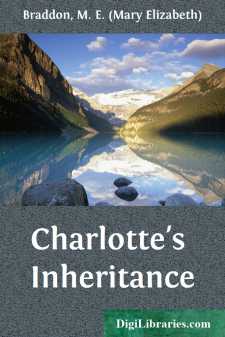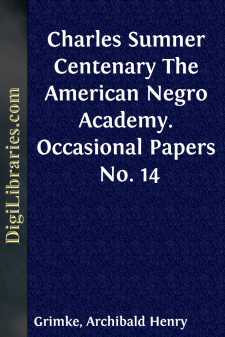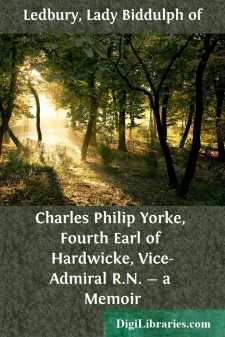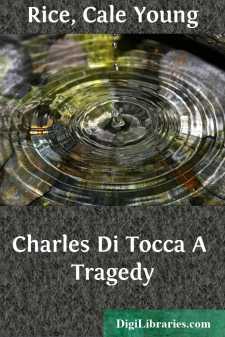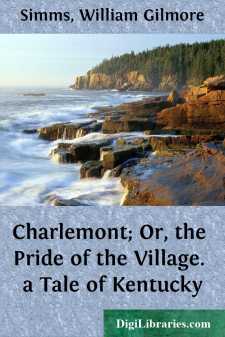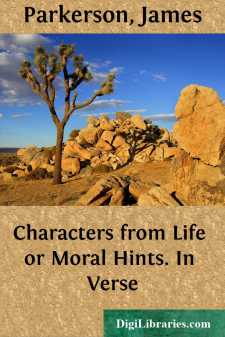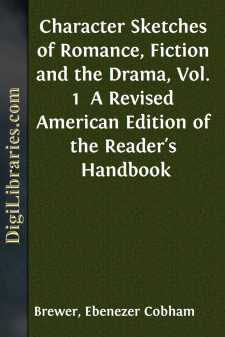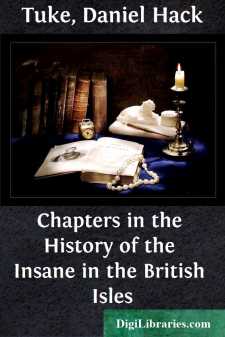Fiction
- Action & Adventure 180
- Biographical 14
- Christian 59
- Classics
- Coming of Age 5
- Contemporary Women 3
- Erotica 8
- Espionage/Intrigue 12
- Fairy Tales, Folklore & Mythology 236
- Family Life 169
- Fantasy 117
- Gay 1
- General 596
- Ghost 31
- Historical 808
- Horror 42
- Humorous 159
- Jewish 25
- Legal 4
- Medical 22
- Mystery & Detective 314
- Political 49
- Psychological 41
- Religious 64
- Romance 158
- Sagas 11
- Science Fiction 730
- Sea Stories 113
- Short Stories (single author) 537
- Sports 10
- Suspense 1
- Technological 8
- Thrillers 2
- Urban Life 31
- Visionary & Metaphysical 1
- War & Military 173
- Westerns 199
Classics Books
Sort by:
CHAPTER I. LENOBLE OF BEAUBOCAGE. In the days when the Bourbon reigned over Gaul, before the "simple, sensuous, passionate" verse of Alfred de Musset had succeeded the débonnaire Muse of Béranger in the affections of young France,—in days when the site of the Trocadero was a remote and undiscovered country, and the word "exposition" unknown in the Academic dictionary, and the Gallic...
more...
CHARLES SUMNER. Every time a great man comes on the stage of human affairs, the fable of the Hercules repeats itself. He gets a sword from Mercury, a bow from Apollo, a breastplate from Vulcan, a robe from Minerva. Many streams from many sources bring to him their united strength. How else could the great man be equal to his time and task? What was true of the Greek Demigod was likewise true of Charles...
more...
CHAPTER I THE YORKE FAMILY The family of Yorke first came into prominence with the great Chancellor Philip Yorke, first Earl of Hardwicke. This remarkable man, who was the son of an attorney at Dover, descended, it is claimed, from the Yorkes of Hannington in North Wiltshire, a family of some consequence in the fifteenth and sixteenth centuries, was born in that town in the year 1690, and rose from a...
more...
CHAPTER I. Caledonia, stern and wild, may be called "meet nurse" of geologists as well as of poets. Among the most remarkable of the former is Charles Lyell, who was born in Forfarshire on November 14th, 1797, at Kinnordy, the family mansion. His father, who also bore the name of Charles, was both a lover of natural history and a man of high culture. He took an interest at one time in...
more...
by:
Cale Young Rice
ACT ONE Scene.—The Island Leucadia. A ruined temple of Apollo near the town of Pharo. Broken columns and stones are strewn, or stand desolately about. It is night—the moon rising. Antonio, who has been waiting impatiently, seats himself on a stone. By a road near the ruins Fulvia enters, cloaked.Antonio(turning): Helen——!Fulvia:A comely name, my lord.Antonio:Ah, you?My father's...
more...
The domestic legend which follows, is founded upon actual events of comparatively recent occurrence in the state of Kentucky. However strange the facts may appear in the sequel—however in conflict with what are usually supposed to be the sensibilities and characteristics of woman—they are yet unquestionably true; most of them having been conclusively established, by the best testimony, before a...
more...
by:
James Parkerson
ADMONITIONSto theDISSIPATED. Excess to mankind oft’times brings,Remorse with all its bitter stings;When cares oppress us in this life.At times we drink to banish strife;But when its feeble aid is o’er,We are more wretched then before.Oft poverty the man disgrace,And shows a drunkard in his face;Suppose he is a man of wealth,Excess of liquor injures health;Not only health but sad to name,Such...
more...
by:
Various
CHARACTER WRITINGS SEVENTEENTH CENTURY. Character writing, as a distinct form of Literature, had its origin more than two thousand years ago in the [Greek: aethichoi Chadaaedes]---Ethic Characters--of Tyrtamus of Lesbos, a disciple of Plato, who gave him for his eloquence the name of Divine Speaker--Theophrastus. Aristotle left him his library and all his MSS., and named him his successor in the...
more...
A'RON, a Moor, beloved by Tam'ora, queen of the Goths, in the tragedy of Titus Andron'icus, published among the plays of Shakespeare (1593). (The classic name is Andronicus, but the character of this play is purely fictitious.) Aaron (St.), a British martyr of the City of Legions (Newport, in South Wales). He was torn limb from limb by order of Maximian'us Hercu'lius, general...
more...
by:
Daniel Hack Tuke
CHAPTER I.MEDICAL AND SUPERSTITIOUS TREATMENT OF THE INSANE IN THE OLDEN TIME. Among our Saxon ancestors the treatment of the insane was a curious compound of pharmacy, superstition, and castigation. Demoniacal possession was fully believed to be the frequent cause of insanity, and, as is well known, exorcism was practised by the Church as a recognized ordinance. We meet with some interesting...
more...


